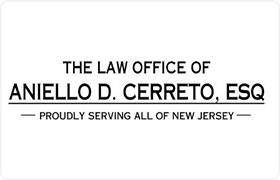Adelphia Divorce & Family Law Lawyer, New Jersey, page 5
Sponsored Law Firm
-
 x
x

Click For More Info:
-
The Law Office of Aniello D. Cerreto, Esq.
215 Gordon's Corner Road Suite 1 Manalapan, NJ 07726» view mapDivorce & Family Law A Lawyer Who Listens To You
When you need an attorney, you need an advocate who takes the time to understand your case.
800-809-4531
 Aniello Cerreto Manalapan, NJ
Aniello Cerreto Manalapan, NJ AboutThe Law Office of Aniello D. Cerreto, Esq.
AboutThe Law Office of Aniello D. Cerreto, Esq. Practice AreasExpertise
Practice AreasExpertise
